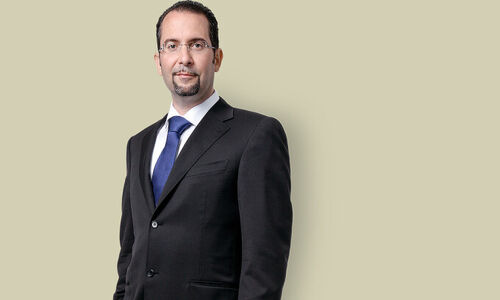The frenzy surrounding the UBS-Credit Suisse deal is slowly but surely dying down. Swiss finance professor Teodoro Cocca assesses the measures by which success will be judged on finews.com.
In less than a month, UBS presents its third-quarter results. From an analyst's perspective, the focus will be on the extent to which Credit Suisse client relationships have stabilized, particularly in global private banking. Once achieved, the focus in the following quarters will be on the implementation of the integration plan.
Looking a little further out, the focus from a strict business perspective is the central question of whether UBS will succeed in making more than 2 out of 1+1. The even greater management challenge than the integration of Credit Suisse is to exploit the long-term competitive advantage of a much larger UBS.
More Efficient Production
This shifts the business consideration from the low purchase price for Credit Suisse to the question of whether from an operational perspective, the much larger entity can «produce» more efficiently. It's an important distinction because UBS got the bank at a bargain price.
However, this isn't a management achievement but owes more to how the deal came about and how skillfully the UBS Board of Directors negotiated. The actual operational management performance must be evaluated independently of the purchase price.
Striving for Scale
Third-quarter results will provide an indication of whether the takeover's potential has been exploited effectively in the context of scale emphasized by management. It's a question of improving the ratio of operating revenues to costs. Once the integration is complete, the new UBS should have achieved economies of scale with lower production costs for its banking services. If not, the entire debate of scale in banking becomes moot and the benefits of such a large bank come into question and will be asked more loudly.
Processing or managing more customer volume on one's platform theoretically has enormous advantages. Fixed costs are offset by higher revenues and productivity increases significantly as output increases for the same input, all other things being equal.
Often Higher Integration Costs
UBS is currently seeking at least ten billion Swiss francs in gross cost reductions by the end of 2026, but that includes many «ifs» and «buts.» First are gross, not net, cost reductions related to shutting down units of Credit Suisse resulting in lost income, raising the question of what will be left on a net basis from 2027 onwards.
Specialist literature teaches us there isn't much left on a net basis after such a bank takeover. The cost saving usually bumps up against significantly higher-than-expected integration costs. In addition, a large integration dampens agility on the earnings side, since the entire organization is more preoccupied with itself than usual.
The cost-income ratio from 2027 of the various segments will provide information as to whether there was an operational improvement. The problem is that investments in the future such as digitalization and AI may even hurt the ratio depending on the accounting method. Therefore, future-oriented key figures have to be taken into account, which brings the UBS share price into focus.
A Better Measure of Success
However, this can be influenced by many exogenous factors and initially reflects the low purchase price for Credit Suisse. A better indicator than the share price is the price/earnings ratio; the earnings multiple investors are willing to pay for a share. The change in the P/E ratio since the end of last year will provide useful information on the extent to which UBS is better off operationally than before the deal. Above all, it will show whether management credibly communicated the potential of the now much larger UBS to investors.
At the end of last year, the expected future earnings multiple for the coming twelve months was eight. It's currently a respectable 13 and, importantly, bucks the industry trend of other major European banks.
Shareholders Will Not Rest
The capital market is currently very positive about the deal's contribution to enterprise value. However, the extent to which this is justified in the short term by the low purchase price for Credit Suisse or in the long term by greater operational efficiency remains to be seen. To paraphrase an old UBS advertising slogan, shareholders will probably not rest until the long-term operational productivity gains prevail.
Teodoro D. Cocca has been Professor of Asset and Wealth Management at Johannes Kepler University Linz since 2006. Before that, he spent several years at Citibank in investment- and private banking, conducted research at the Stern School of Business in New York, and taught at the Swiss Banking Institute in Zurich. In addition, the Swiss with Italian roots is an associate professor of private banking at the Swiss Finance Institute (SFI) in Zurich and acts as a consultant for financial companies and public authorities in Switzerland and abroad.



































